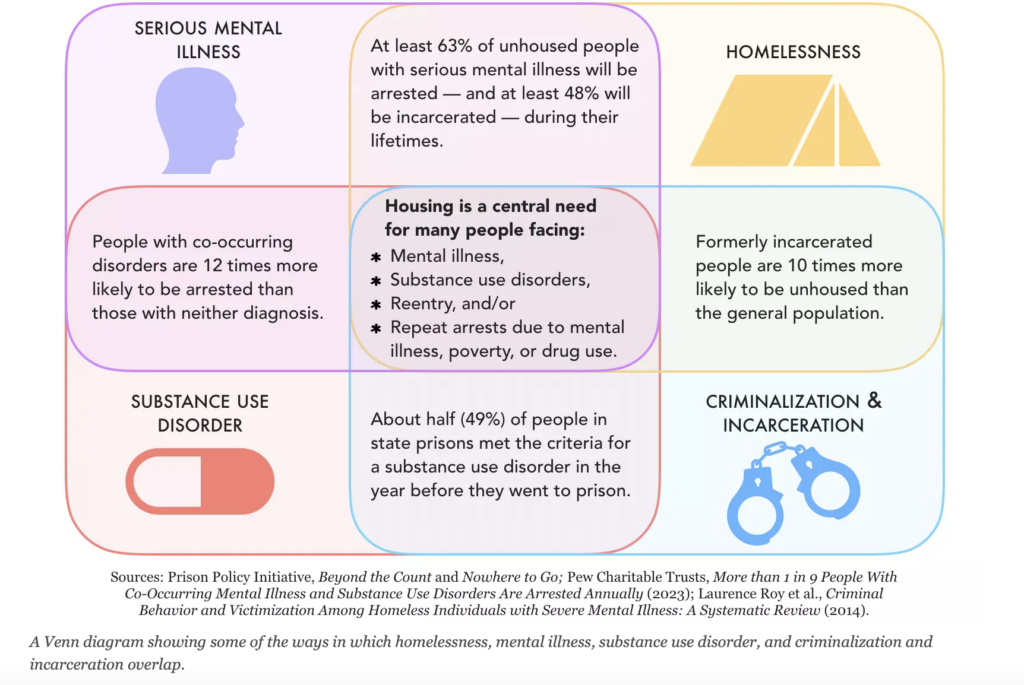Housing First - Key to Supporting the Formerly Incarcerated
Nearly 65% of people who are released from prison will end up homeless

The benefits of stable housing for the formerly incarcerated are numerous and well-documented. It provides a much-needed sense of stability and normalcy after the upheaval of their pre-incarceration life. It can also help to reduce recidivism rates, as individuals with stable housing are less likely to re-offend. Additionally, stable housing can help individuals reintegrate into society and rebuild their lives after incarceration. It can provide a foundation to find employment, reconnect with family and friends, and develop a support network. Finally, stable housing can provide a place to call home after a long period without one. For many formerly incarcerated individuals, stable housing is critical in rebuilding their lives and moving forward.
Just as well-documented are the roadblocks facing formerly incarcerated individuals in obtaining stable housing. The existence of housing bans make it difficult or even impossible for people with criminal records to find a place to live. There are several ways landlords discriminate against individuals trying to qualify for housing with a criminal past. Landlords, agents, or management councils may conduct a background check on potential tenants. They may also request a renter's criminal history. No statute prohibits landlords from refusing to rent to people with a criminal record, regardless of the offense or how long ago it occurred. Landlords can also: 1. Charge higher rents, 2. Require higher security deposits, 3. Require a co-signer on a lease, 4. Refuse to renew leases or only offer short-term leases.
People are more likely to re-offend and end up in prison if re-entry programs and families do not support them after release. Because they have damaged relations with family and friends and a conviction restricting their job options, they may end up homeless or in an unstable and transitional living environment. This spiral of instability is difficult to break out of, and a lack of support contributes to it. According to a Bureau of Justice Statistics study, more than two-thirds of people who are released from prison are rearrested within three years. The consensus among social scientists is that recidivism rates drop when released individuals have stable housing arrangements. The reasons are numerous and complex of why people re-offend; however, the essential element is that stable housing provides a foundation from which they can rebuild their lives after incarceration.
Two recent studies focus on the importance of stable housing to interrupting the cycle of homelessness to incarceration.
- "Fighting Criminalization with Housing First," published by the Prison Policy Initiative, argues that giving people housing that isn’t tied to whether a person stays sober or gets help with mental health conditions gives them the stability they need to address life crises and makes them less likely to wind up back behind bars.
- "Finding Home: Removing Barriers to Housing for Formerly Incarcerated Individuals," from Duke University Law's Wilson Center for Science and Social Justice, offers viable recommendations to make it easier for people returning home from prison to acquire a place to live.
“We know that homelessness and involvement in the criminal legal system can be cyclical and interrelated. Experiencing homelessness can make someone more likely to be involved in the criminal legal system and involvement in the criminal legal system can make someone more likely to experience homelessness,” said Wilson Center Policy Director Angie Weis Gammell. “Ensuring access to housing improves lives and reduces the likelihood of initial or repeat involvement in the criminal legal system.”










